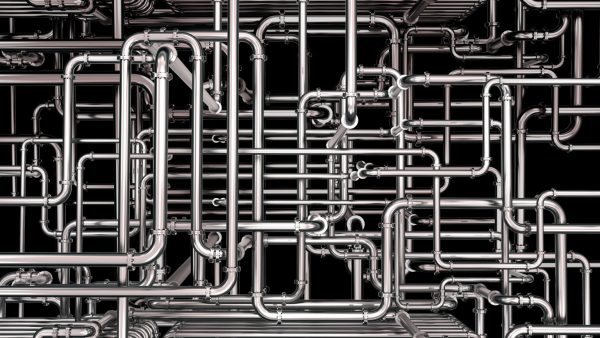Does a spring pour forth from the same opening freshwater and brackish water? (James 3:11)
Can you imagine what it would be like to live your whole life in a world where water had to be drawn by hand fifty to a hundred metres from your home and carried into your house? All the water you use in a day, for cooking, drinking, bathing and cleaning, all of it had to be carried in a bucket from the well into the house. And, of course, this would be cold, or at least cool water. If you wanted warm water, you had to make a fire and heat the water. (By the way, there are still many people in the world who live this way.) Of course you may have experienced such a thing as a hot spring, so you knew that there were some places where the water came out of the ground hot–hot and often undrinkable.
This is the world St. James lived in when he wrote his epistle, and so everyone understood his metaphor: one spring did not produce both fresh and brackish water; so, St. James reasons, one person’s mouth should not pour forth both blessing and cursing.
But now imagine if St. James were translated 2000 years forward and found himself in a modern house. In this house he would find a spring, or tap (many taps), that produced both cold and hot water. And for St. James, knowing nothing about plumbing, it would be an inexplicable miracle. How could this be? How can both cold and hot water come from the same spring?
When we read the bible, we experience something similar to what I think St. James would experience if he were to be transported from his world into ours. We experience this when we read in the bible of God’s justice and wrath, and of God’s mercy and love–often in the same passage! We read that God is Truth, and of God sending delusion, “strong delusion so that they will believe a lie” (2 Thes. 2:11). We read of human free will and of divine predestination. Jesus says both, “Whosoever wills” and “You did not choose me, but I chose you.” How can this be? How can both be true at the same time? How can both cold and hot water come from the same tap?
Because we understand modern plumbing (at least a little bit), we know that it’s what’s behind the wall that makes this possible. Similarly, the spiritual realities that are revealed to us in the bible and through our life experience, while they often seem contradictory to us, would make perfect sense if we could only see behind the wall, behind the wall created by a logic trained by our five senses, a logic formed by the assumptions and experiences of merely physical reality.
But maybe this is why contradictions are so necessary. The very paradoxes and non sequiturs of life lead us to conclude that there must be something more, Someone more. This is probably why the bible and Orthodox theology generally do not attempt to resolve the tension, the contradictions, the incongruity, the paradox. It is in the space between the yes and the no, between judgement and mercy, between knowing and not knowing that we actually come to know not the what or how behind the wall of eternity, but the Who.

















